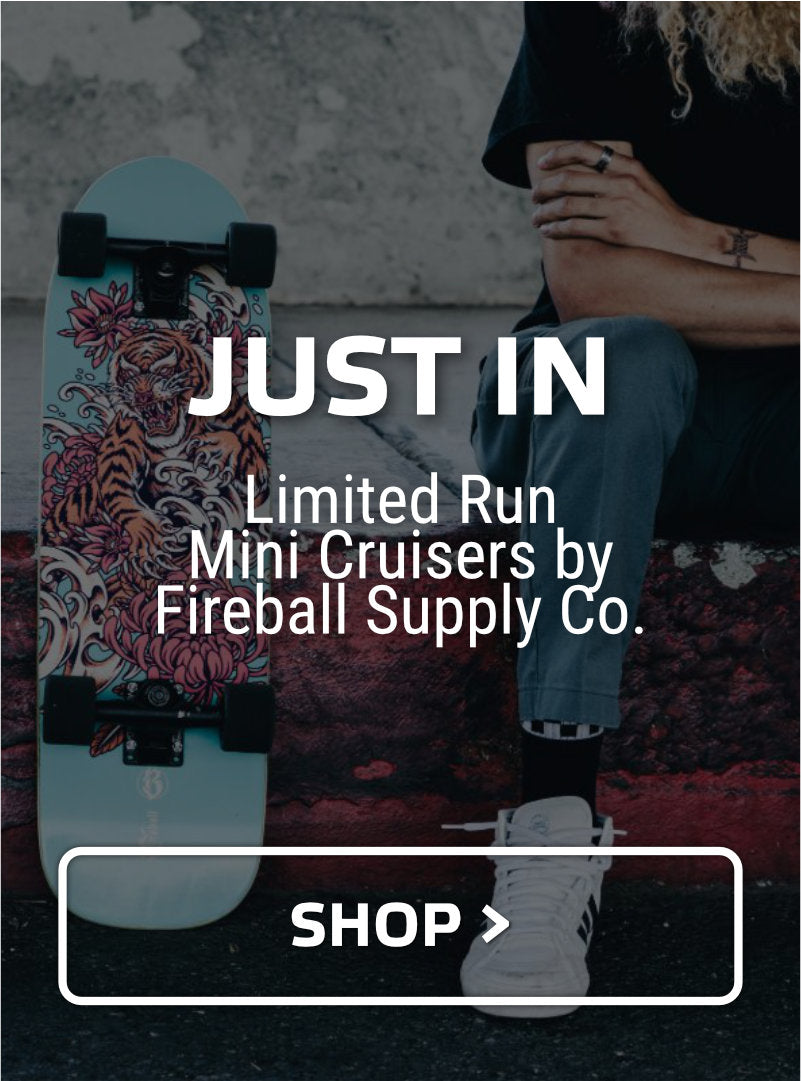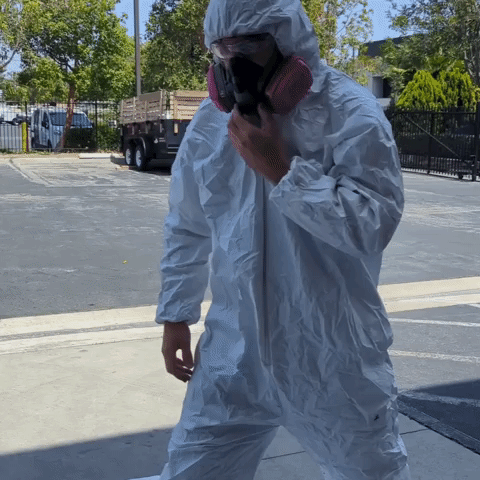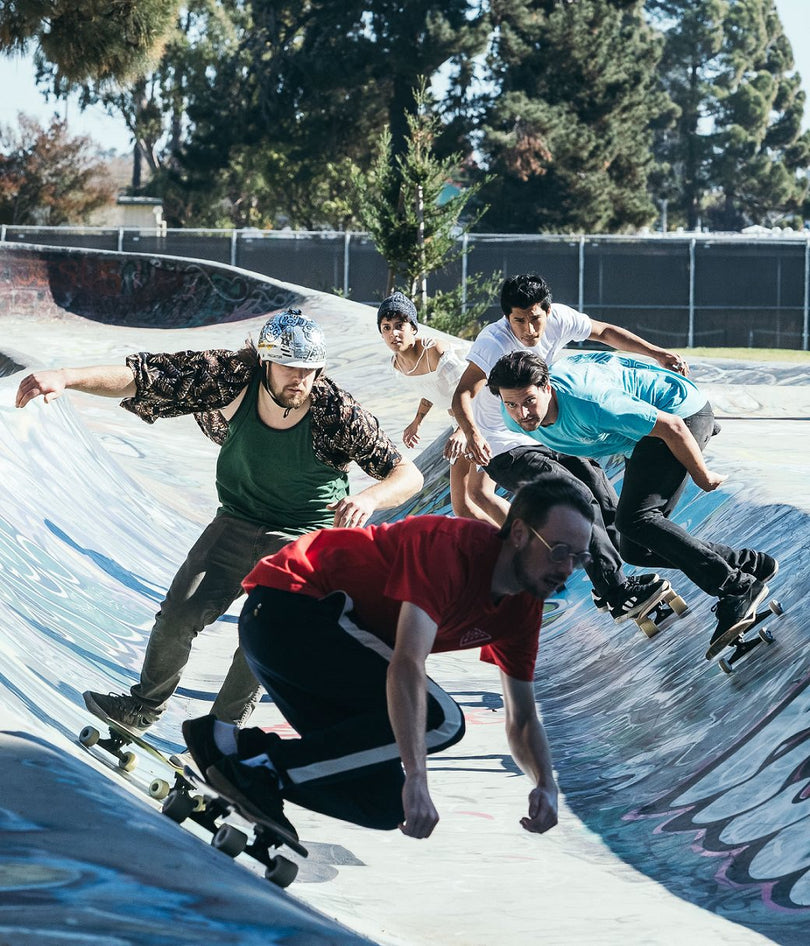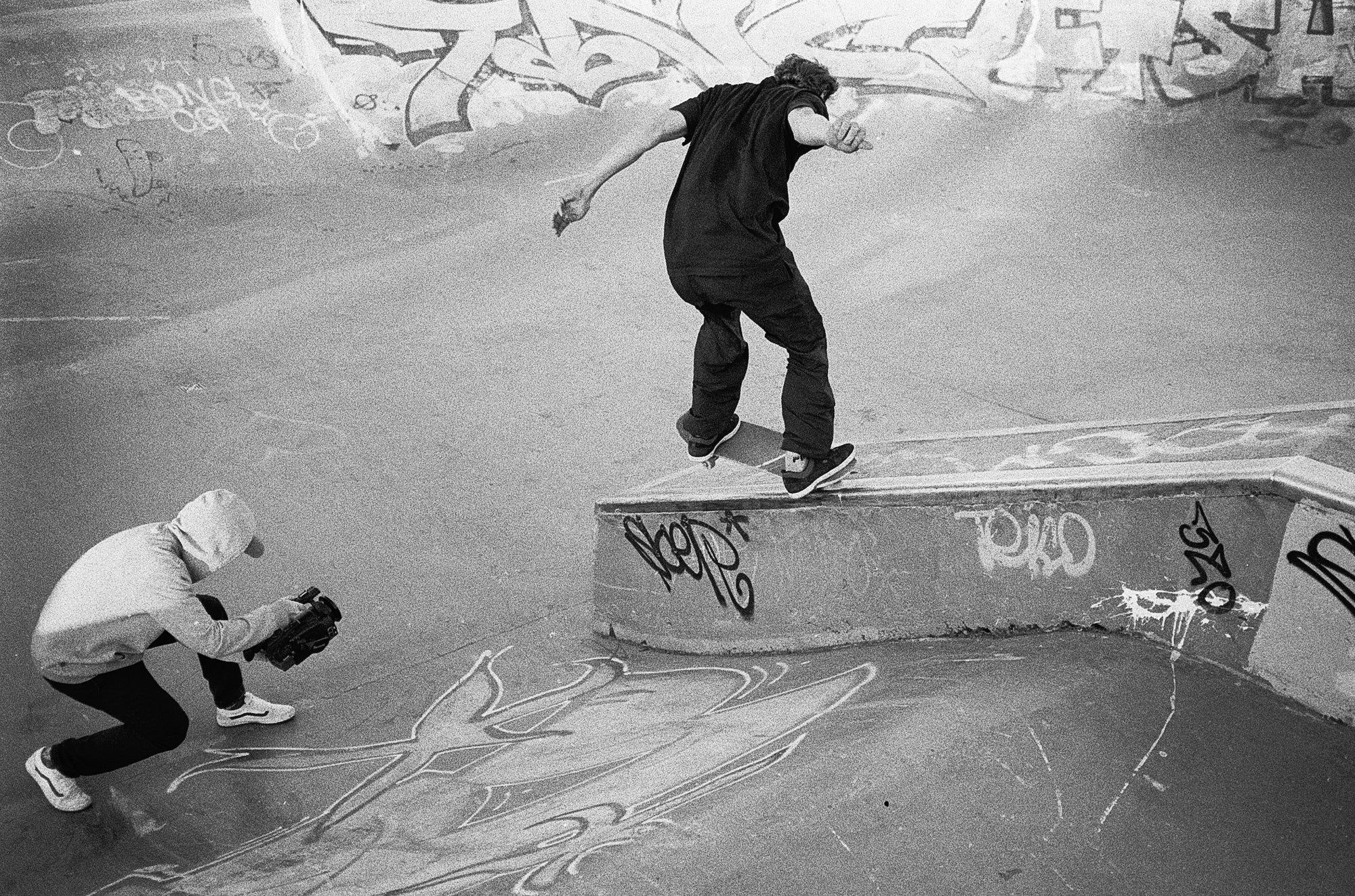When you're just starting out in surfing, it's important to choose the right surfboard. A beginner surfboard should be easy to paddle and catch waves on, while also being stable and durable. In this guide, we'll recommend some of the best beginner surfboards on the market and give you some tips on what to look for when choosing a board.
3 best beginner surfboards
-
🏄♂️
# 1
Paragon Surfboards Retro Noserider Longboard 
- Why it's rad: Paragon's high-end materials make this board lighter, stronger, and more buoyant than typical boards.
If you're just getting started in surfing, you need a board that is easy to paddle and will help you catch waves. Here are three great beginner surfboards to get you started.
Our first pick is Paragon Surfboards' Retro Noserider Longboard. This is a great choice for those looking for a classic noserider. It features a traditional shape with a round nose and tail, and a single fin setup. The board is made of durable polyurethane foam and is designed to perform well in both small and large waves. It's an ideal choice for those who want to enjoy the classic noseriding experience.
Our next pick is the Wavestorm Classic Soft Top Foam 7ft Surfboard. This is an excellent choice for beginner and intermediate surfers. It is made of high-density polyethylene foam, which makes it durable and easy to control. The deck is textured to provide traction, and the rails are beveled to help you stay on your feet. The Wavestorm Classic also comes with a leash and a wax comb.
Our last pick is the South Bay Board Co. Premium Surfboard. This board is constructed from premium materials that are built to last. The board's core is made from high-density polyurethane foam, which is incredibly strong and lightweight. This material gives the board an excellent strength-to-weight ratio, making it sturdy enough to handle big waves while still being easy to maneuver.
So there you have it, three great beginner surfboards to get you started. Now get out there and start surfing.
[The much loved Tech Deck.]
Best beginner surfboards - overview
When you're first starting out, it's important to choose a wide and stable board. A wider board will make it easier to paddle and catch waves, while a narrower board will be more maneuverable but harder to control. The length of the board should be based on your height and weight, with taller and heavier surfers needing longer boards.
Some good beginner surfboards include the foam boards from Funboard, the soft-top boards from BIC Sport, and the all-round boards from NSP. These boards are all designed to be stable and easy to ride, while also being durable enough to withstand repeated use.
When choosing a beginner surfboard, it's important to consider your own height and weight, as well as the conditions you'll be surfing in. If you're taller or heavier, you'll need a longer and wider board. If you plan on surfing in smaller waves, you can get away with a shorter board. Ultimately, it's best to try out different boards before you purchase one to make sure it's the right fit for you.
[What do you know about surfing?]
What surfboard is best for a beginner?
When you're just starting out surfing, it's important to choose the right surfboard. A board that is too big or too small can make learning to surf much more difficult than it needs to be. In general, beginners should look for a surfboard that is:
- Between 7 and 9 feet long
- Wide enough to provide stable footing
- Thick enough to float easily in the water
If you're unsure about what size or type of surfboard to get, ask a salesperson at a surf shop for help. They will be able to recommend the best board for your height, weight, and skill level.
Is a 6'6 surfboard good for a beginner?
The short answer is no, a 6'6 surfboard is not ideal for a beginner. While you may be able to catch some waves on a board that size, it will be much harder to control and you'll likely end up frustrated.
Surfboards come in all shapes and sizes, and the size that's right for you will depend on your height, weight, and experience level. Beginners should start with a board that's around 7-8 feet long. This will give you enough volume to float on the waves and help you stay stable as you learn to surf.
If you're taller or heavier than average, you may want to go with a longer board. And if you have experience surfing, you may be able to handle a smaller board. But for most beginners, a 7-8 foot board is the sweet spot.
So if you're just starting out, steer clear of the 6'6 boards and go with something a little more manageable. You'll have a lot more fun - and stay safer in the water.
[Need new street skateboard wheels?]
Is a 10 foot surfboard good for beginners?
It's a common misconception that big boards are only for experienced surfers. In fact, a 10 foot surfboard can actually be a great choice for beginners. Here's why:
1. Big boards are more stable. This means that you're less likely to wipe out and will be able to stay on your board longer.
2. You'll be able to catch more waves. A bigger board means more surface area, which means you can paddle faster and catch waves more easily.
3. You'll have more fun. Let's face it, surfing is all about having fun. And what's more fun than catching lots of waves?
So if you're thinking about getting a surfboard, don't be afraid to go big. A 10 foot surfboard just might be the perfect choice for you.
Is a shortboard good for a beginner?
Most beginner surfers start out on a longboard. This is because longboards are more stable and easier to paddle than shortboards. However, some beginner surfers do choose to start on a shortboard. If you are thinking about starting on a shortboard, there are a few things you should keep in mind.
First, shortboards are much less stable than longboards. This means that you will need to have good balance and coordination to ride one. If you are not confident in your abilities, you may want to start with a longboard instead.
Second, shortboards are much harder to paddle than longboards. This means that it will take you longer to catch waves on a shortboard. If you are patient and are willing to put in the effort, you will eventually be able to catch waves on a shortboard.
Third, shortboards are much more maneuverable than longboards. This means that you will be able to do more tricks and turns on a shortboard. If you are looking for a board that you can progress on, a shortboard is a good choice.
Keep these things in mind if you are thinking about starting on a shortboard. If you have the ability to balance and paddle well, and you are patient, a shortboard can be a great choice for a beginner surfer.
[Want the best beginner surfboards?]
What are the best beginner surfboards?
When you're just starting out in surfing, it can be tricky to know what kind of surfboard is best for you. There are so many different types and shapes of boards out there, and it can be tough to figure out which one will work best for your individual needs.
The good news is that there are definitely some great beginner surfboards out there that can help you get started on the right foot. In this article, we'll go over some of the best beginner surfboards on the market, so you can make an informed decision about which one is right for you.
One great option for a beginner surfboard is the SoftTop Surfboard from Wavestorm. This board is specifically designed for beginners, and it's made from a soft foam material that's very forgiving if you happen to fall off. It's also extremely stable, so you won't have to worry about it tipping over when you're riding waves.
Another great option for a beginner surfboard is the BIC DURA-TEC Surfboard. This board is also designed specifically for beginners, and it's made from a durable fiberglass material. It's very lightweight, so it's easy to carry around, and it's also very stable on the water.
If you're looking for a more traditional surfboard, the NSP Classic Surfboard is a great option. This board is made from a solid wood construction, so it's extremely durable. It's also very stable in the water, making it a great choice for beginners.
Finally, the Quicksilver Swift Surfboard is another great option for beginners. This board is made from a lightweight fiberglass material, so it's easy to carry around. It's also very stable on the water, making it a great choice for beginners.
No matter what kind of beginner surfboard you're looking for, there are definitely some great options out there. Just make sure to do your research and choose the right board for your individual needs. With the right board, you'll be surfing like a pro in no time.
[Want to skateboard on bumpy roads?]
What size surfboard should a beginner buy?
There is no one-size-fits-all answer to this question, as the ideal surfboard size for a beginner will vary depending on factors such as the surfer's height, weight, and level of experience. However, in general, a good rule of thumb is to start with a board that is around 7 feet long and 21 inches wide. This will provide a stable platform for learning the basics of surfing.
If you are unsure about what size surfboard to buy, it is best to consult with a experienced surf shop employee or another experienced surfer. They will be able to help you select a board that is right for your individual needs.
How long should a surfboard be for a beginner?
When starting out, it is important to choose a surfboard that is the right size for you. A board that is too large will be difficult to control, while a board that is too small will lack the stability you need. As a general rule of thumb, a beginner should start with a surfboard that is between 7 and 9 feet long. Once you have more experience, you can move to a longer or shorter board, depending on your preferences.
Surfboards come in all sorts of shapes and sizes, so it's important to choose one that is right for your level of experience. If you are just starting out, it's a good idea to get a board that is between 7 and 9 feet long. This will give you the stability and control you need to learn the basics. Once you have more experience, you can move to a shorter or longer board, depending on your preferences. No matter what size board you choose, always make sure it is the right fit for your height and weight.
[Everything to know about an electric longboard.]
Is the best beginner surfboard a longboard?
When it comes to choosing the best beginner surfboard, there are a few things to consider. One of the most important factors is the length of the board. A longboard is typically the best choice for beginners because it is easier to paddle and provides more stability while surfing.
Another thing to keep in mind is the width of the board. A wider board will be more stable in the water and will also provide more floatation, making it easier to catch waves. The weight of the board is also an important consideration, as a heavier board will be more difficult to maneuver in the water. Ultimately, it is up to the individual surfer to decide which type of board is best for them.
How long should a beginner surfboard be?
When choosing a beginner surfboard, one of the most important factors to consider is the length of the board. Generally, beginner boards should be between 7 and 9 feet long. The exact length will depend on the height and weight of the rider, as well as the type of waves they'll be surfing.
Shorter boards are easier to maneuver and control, making them ideal for beginners. They're also better for catching small waves. However, shorter boards can be less stable than longer boards and may not have as much floatation.
Longer boards are more stable and have more floatation, making them ideal for bigger waves. However, they can be harder to control and may not perform as well in smaller waves.
The best way to find the right length for your beginner surfboard is to talk to a knowledgeable salesperson at your local surf shop. They can help you choose a board that's the right size for your individual needs.
[What size longboard should I get?]
Other factors to consider
If you are a beginner, there are a ton of factors to consider when it comes to buying a surfboard. Below are some more terms and important elements, which we were not able to cram into this article.
-
epoxy
-
foam surfboards vs. polyurethane surfboards
-
stringers
-
thrusters
-
wetsuits
-
buoyancy
-
high-performance foamie boards
-
choosing your first surfboard / picking the right first board
-
brands like Catch Surf
-
mini mal boards
-
beginner surf schools
-
epoxy boards
-
EPS foam
-
improving your wave count
-
epoxy surfboards
-
pop ups
-
rocker boards
-
shaper
As you embark on your surfing journey, you will need the perfect beginner surfboard - no matter what that may be. Your first time surfing can be a little stressful, but advanced surfers will know that mid-length boards can be a good choice, as well as performance boards, hard boards, and many other types.
Advanced surfers will be able to handle nearly any wave conditions, and even Amazon has perfect boards to allow you to acclimate with your specific learning curve. Great boards will allow you to forget about everything, and just keep catching killer waves - so choose wisely.








![Skateboard On Bumpy Roads [Detailed Guide]](http://stokedrideshop.com/cdn/shop/articles/BRYSON-HEFFER-SKATE-2_2048x2048_fd1e45fa-e519-4f27-bf20-4d1b015da0aa_1080x.jpg?v=1704908604)
